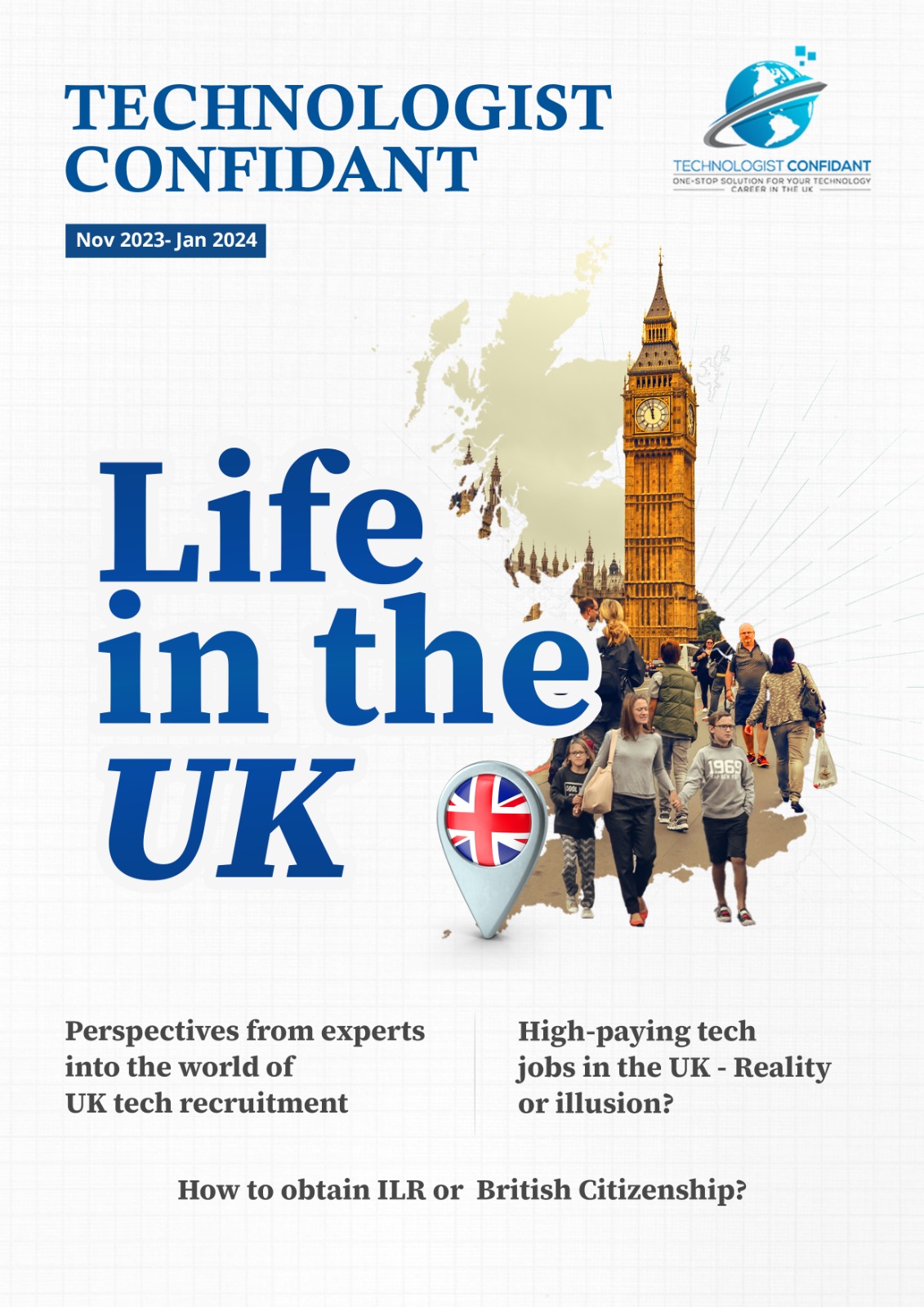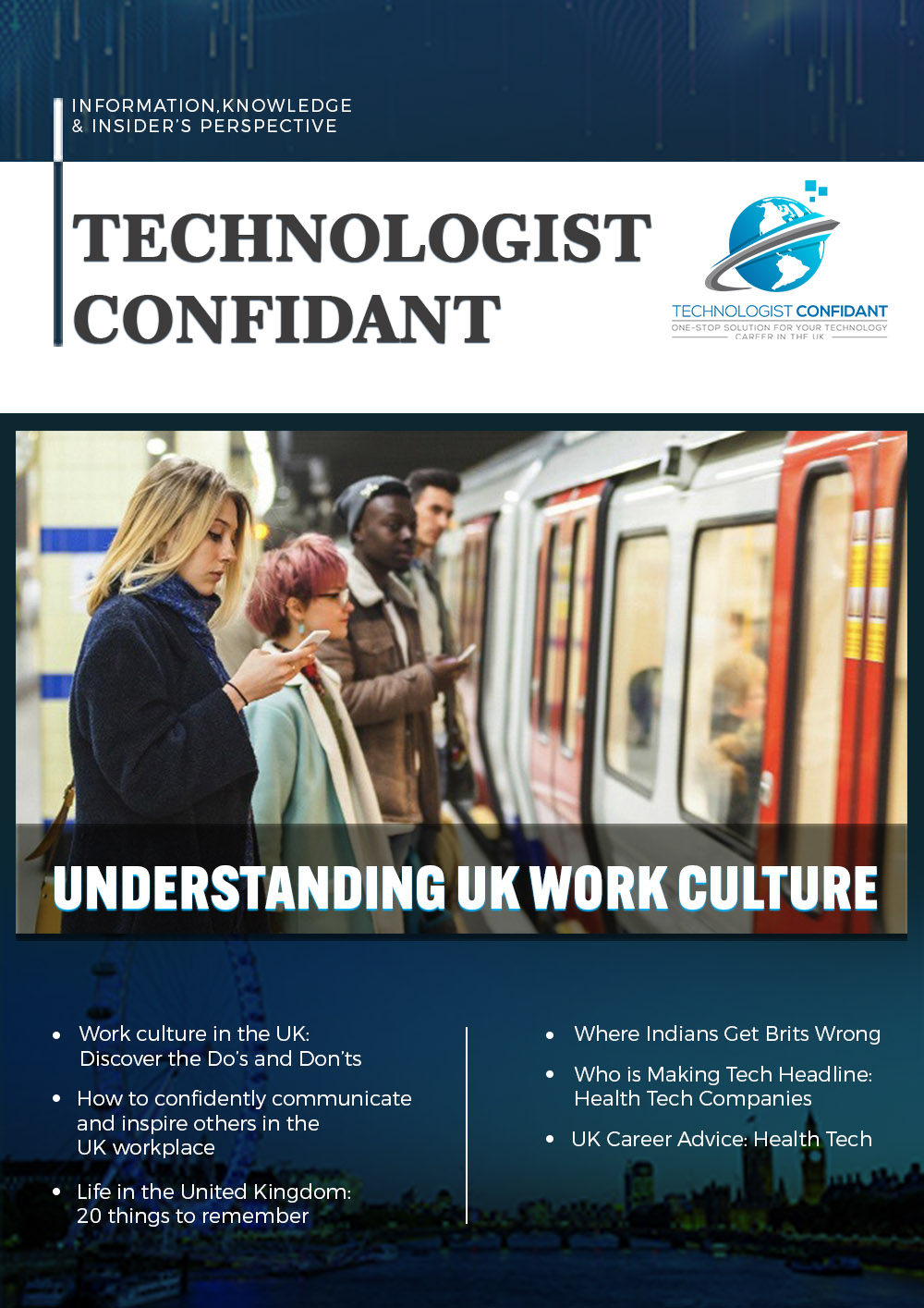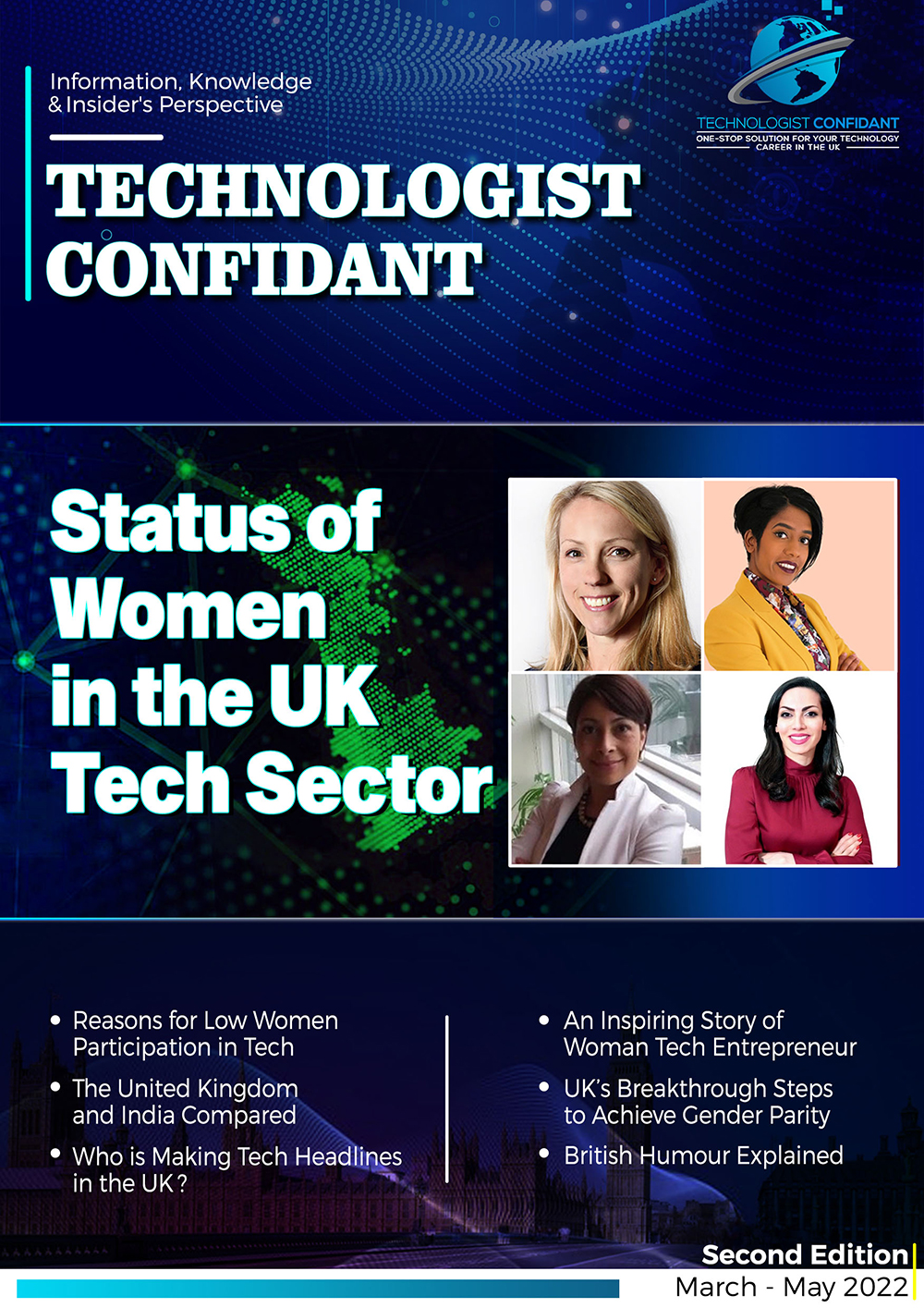The technology sector is thriving and continuously evolving, sprawling with exciting career opportunities. In the UK, AI, Cybersecurity, FinTech, Life Sciences and Green Tech are proliferating and require a diverse workforce to accelerate innovation. With such a fantastic outlook for the sector, Technologist Confidant is on a mission to inspire women to consider a career in the technology industry.
TC spoke with Somi Arian, a role model for Women in Tech, a driving force behind levelling the playing field for women in all areas of professional growth. She is a thought leader, tech speaker, well recognised and award-winning women leader in the UK tech sector. She is a shining example of success and motivation, what women can achieve if they choose technology as their career. She has inspired and continues to inspire women as a role model and a mentor.
As a speaker, Somi gives talks and workshops internationally on the impact of technology on society, the business landscape, the future of work, thought leadership, and digital transformation in marketing and HR. With a background in the philosophy of science and technology, Somi describes her role in society as a 'Transition Architect'. As humans merge with technology and society enter a new human evolution phase, Somi works on frameworks to address the challenges ahead. She is the thought leader, investor, and advisory board member of NuroKor Bioelectronics, an exciting wearable technology startup.
We interviewed Somi Arian, founder of Smart Cookie Media, a 'Transition Architect' who spoke of taboos attached to the women taking STEM subjects and norms that guide gender structure in the tech industry.
TC: What is the first thing coming to your mind when you think about "Women in Tech"?
Somi: That there should be more of them. The world is facing a technological revolution. We are reaching a stage where our physical lives are starting to merge with our virtual lives, and advances in technology are paving the way for the future of humanity. The ongoing Covid-19 pandemic has only served to accelerate this.
We are in the 21st Century, and, incredibly, most of our technology is still designed and engineered by men. So if we are entering a technological age, it is crucial for women to be part of the conversation shaping our future. In many areas, they should be leading it, especially regarding things like women's health, for example.
TC: Why do you think there are still so few females in the technology sector?
Somi: There are many reasons why there are still so few females in the technology industry, and it all starts in childhood. As we enter this technological revolution, females are more immersed in technology from an early age. Still, if you look at the millennials and the generations before, who now make up the workforce, from an early age, as girls, we were told that STEM subjects were boys subjects, and mostly steered away from them to subjects considered more suitable to females.
It was pretty strange to see a girl interested in these subjects, let alone pursue them as a career once out of school. Still, whenever one of us did, these women often found the environment in tech companies to be entirely unwelcome to them. In my research, I have found that some of the most common reasons women leave their tech jobs range from being underpaid to their male counterparts, experiencing a lack of flexibility in the workplace, and receiving very little support from male peers. In addition, many women have also found that they are not taken seriously, the environment is sexist, and promotions and recognition are scarce. This lack of promotions leads to having even fewer women in the top tiers of the tech industry, resulting in an evident lack of female mentors and role models.
TC: What advice would you give to young women entering the tech field in the UK? Anything you wish you had known?
Somi: My advice would be to keep going after what they believe in and never give up. It is essential to create a network and get the support they need to keep going forward. That is one of the reasons I built the FemPeak platform, to help women across all industries connect and learn from each other. If we want to change the industry, we need to do it from within, and for that, we need to keep being in the industry and reach places of influence.
TC: According to you, how the UK tech landscape has changed and adapted for women in the wake of the COVID outbreak and Brexit?
Somi: Plenty of data shows that many women are still quitting their jobs because of the challenges presented by managing family obligations, children's homeschooling, and work-life balance after the lockdowns caused by the pandemic. So, on the whole, for me, the effects the pandemic has had on women's landscape in tech feel pretty detrimental.
Judging by the feedback we are getting from some of our audience on the FemPeak platform, many women have isolated themselves during these times. If governments and organisations put in resources behind this, it could work out positively for women, but that is not happening now.
One of the main reasons many women don't go into tech is because it is so male-dominated. This is a problem on a physical landscape, but as we enter the digital age and move to a more virtual landscape, this aspect should not matter as much. But for this to happen, we, and I mean everyone, not just governments and organisations, need to address the problem. If not, the gap will only continue to widen.
For example, many of the thriving tech women I have reached out to for my podcast have had to decline because they lacked the time due to family obligations. This is something that many people don't realise, but because of this unbalance in the family responsibilities women have to take on, especially after the pandemic with the whole family spending more time at home, these women are missing out on a lot of career opportunities and visibility in their industry.
More about Somi Arian:
Somi’s latest endeavour is the Think Tank for Women in Business & Technology and the FemPeak platform that aims to help raise women's socioeconomic status. Somi’s documentary, “The Millennial Disruption, " won three international awards. Her book, “Career Fear (and how to beat it)", addresses the future of work and the skills we all need to gain to survive and thrive in the age of Artificial Intelligence.






